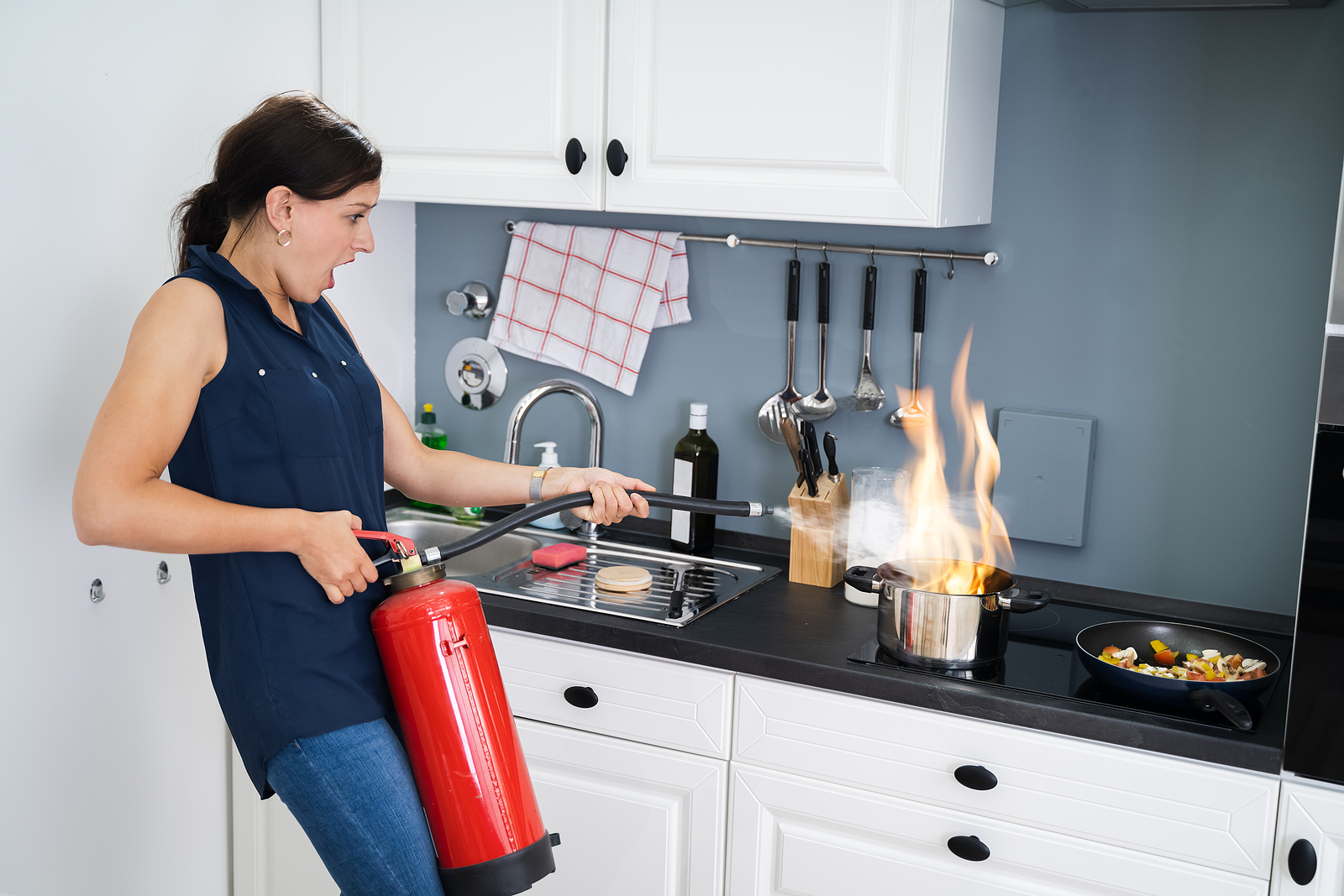The pandemic has wrought many changes to life for the average American. More people are gardening, swimming pool installations have skyrocketed, certain household items, such as sanitizing wipes, are still hard to find at the supermarket.
Cooking at home has increased by 54% and, with it, kitchen fires have too. A recent report by the National Fire Protection Association (NFPA) finds that cooking fires are the biggest cause of fires in the homes. They rank second when it comes to fire deaths.
“The leading cause of fires in the kitchen is unattended cooking,” according to the experts with NFPA.
We thought this would be the perfect time to remind you of some basic kitchen and cooking safety tips.
How to avoid kitchen fires and injuries
- Never cook when you are overly tired or intoxicated.
- Nearly 15% of kitchen fire deaths are the result of clothes catching fire while cooking. Avoid wearing long, loose sleeves and reaching into the cupboard above the stove while cooking.
- Remain in the kitchen while you are cooking on medium to high heat.
- Check on slow-cooking food frequently.
- Keep flammable items, such as kitchen towels and hot pads, away from the stove.
- Wipe up spilled food and grease so that it doesn’t catch on fire.
- Keep children and pets away from the stove and never hold a child while cooking. The NFPA suggests creating a “kid-free” zone of at least 3 feet around the stove.
If you have a cooking fire
- Leave the kitchen immediately.
- If there is a door to the kitchen, close it behind you.
- Gather others in the home and move outdoors.
- Dial 911 once you are safe.
- If the fire is in the oven, turn it off and keep the door closed to smother the flames.
- The experts at NFPA suggest that you “Keep a lid nearby when you’re cooking to smother small grease fires. Smother the fire by sliding the lid over the pan and turn off the stovetop. Leave the pan covered until it is completely cooled.”
As we head into the holiday season, keep in mind that most home cooking fires occur at Thanksgiving and Christmas, according to the NFPA survey.







 EN
EN
 ES
ES